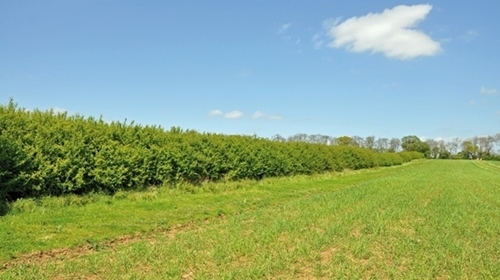Our Director of Policy and the Allerton Project, Dr Alastair Leake, shares his thoughts on the latest domestic hedgerow regulations.

The Government has just published the results of its consultation on hedgerow protection rules. These were the rules which formed part of the Cross Compliance measures farmers were obliged to observe under the Basic Payment Scheme (BPS); break the rules and have your payment reduced. But with the BPS fast disappearing some environmentalists chose to claim that this would lead to a free-for-all in the destruction of our hedges by farmers. Not something I was conscious of in my dealings with farmers, now confirmed by this consultation, showing a large majority of farmers in favour of retaining existing rules.
However, it has not always been this way. Back in 2004 we were commissioned by English Nature (EN, the forerunner of Natural England) to carry out an economic impact of obliging all farmers to leave 2.0m from the centre of the hedge uncultivated, sprayed, or fertilised. We looked at the impact across a range of rotations and crop types. We concluded that in almost every situation any farmer growing crops in this zone, using the same inputs as the rest of the field, would be losing money. The extent of the loss was determined by the height of the hedge, the orientation of the hedge in relation to the sun, and the crop being grown. For example, cereal crops are impacted up to 20 metres out into the field, whereas sugar beet appeared more tolerant to shading and hedgerow competition.
Our research prompted EN to include a 2.0m hedgerow buffer strip as part of Cross Compliance regulations, along with the existing restrictions on when the hedge can be trimmed or removed. The announcement was met with dismay by many farmers, quite a number of whom were still practicing assiduous chemical extermination of hedge base vegetation to maximise cropping and prevent weed ingress. In response to the outcry, I published our findings in Farmer’s Weekly to demonstrate that trying to crop this area was in fact harming farm profitability, not helping it, and harming wildlife at the same time. But it was still too much for many, locked into the mentality of “farming every inch”.
Since the introduction of the 2.0m strip we have learnt a great deal more about what goes on in “hedgespace”, including the buildup of soil carbon through the flailings, the harbouring of natural pest predators, and as a refuge for earthworms which can then help re-colonise fields after invasive soil cultivations, such as required to grow potatoes.
So we should take great heart, 20 years on, that 82% of farmers support the retention of the protection zone – it’s good business and environmental sense.